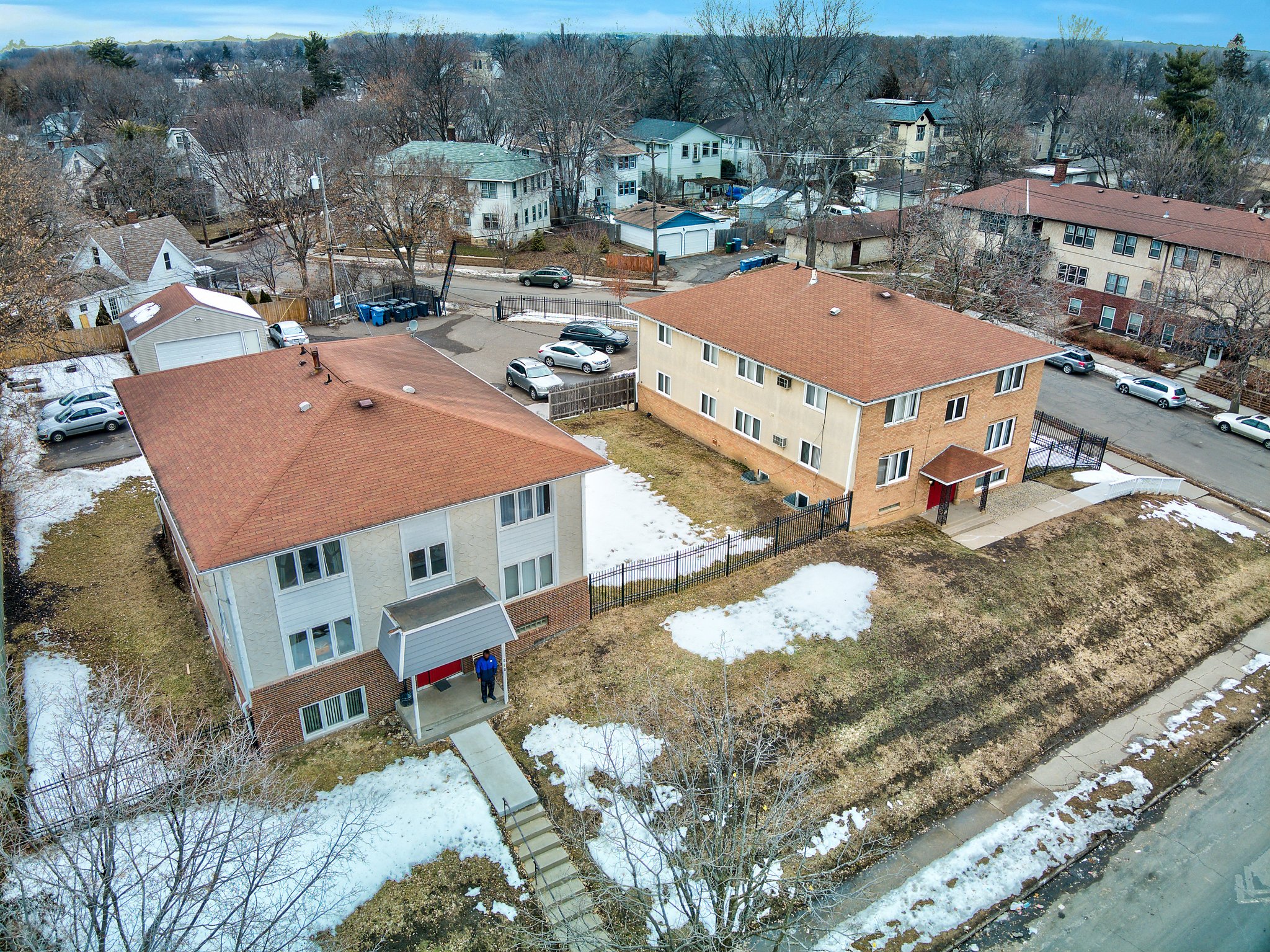How to Retire from Being a Landlord:
A Guide For Seasoned Rental-Property Owners
Introduction
Are you a long-time landlord, feeling tired of the endless to-do list at your apartment building(s)? I know you built up mental “calluses” a long time ago, but after all these years, the tenants, toilets, and trash are finally getting to you. It doesn’t help that the political and public sentiment often vilifies landlords despite the essential service we provide. That being said, the recent run-up of real asset values has definitely worked in your favor.
If you are ready to turn the page and embark on a new chapter of life, there are crucial considerations before making the big decision. As both a rental property owner myself and a seasoned commercial real estate agent, specializing in Multifamily Investment Sales, I understand the challenges you face. This article aims to guide you through the process of retiring from being a landlord, with insights on what to consider and various options that are available to you.
Start With The End In Mind

Define Your Post-Retirement Goals
Before diving into the logistics, take a moment to reflect on what you want to do with your time. Time is the true currency of the wealthy and when you can decide where to spend it, you can really find fulfillment. Are you looking for more time with your family? Will you be spending more time traveling the world? Or do you have other passions that you want to pursue? Understanding your post-retirement goals will help inform your decisions in the journey ahead.
Navigate Your Tax Ramifications
Selling your properties will likely come with tax implications, including capital gains and depreciation recapture. Uncle Sam is always going to get what’s his. It’s important to consult with a knowledgeable tax advisor so you will understand the financial impact of your upcoming actions. You may have other financial life events that would call for a sale earlier or later. If you have multiple properties it might make sense to stagger the sales into multiple tax years. You will want to explore strategies to minimize your tax liabilities. You worked hard for your financial gains and you don’t get bonus-life-points for paying more taxes than you are legally obligated to.
Assess Your Future Cash Flow Needs
For many seasoned landlords, rental income has been a significant part of their livelihood. Carefully consider your future cash flow needs and how the decision to sell will affect your financial stability. While a sale may result in a big lump-sum payout, will that be sufficient for your future financial needs? Is there a way to structure your future windfall in a way that will be more consistent and predictable? Thinking beyond your retirement, is consistent cash-flow something that is important to your heirs?
Explore Your Options

1. Hire a Property Manager
If you desire freedom from the day-to-day operations but still want to build equity and maintain cash flow, hiring a property management company is one option you could choose from. This allows you to step back from being involved in every decision so you can have time for the more important things in life. Your role will transition to that of an asset manager where you direct the business plan and monitor a handful of Key Performance Indicators (KPIs). This way you can be sure that the manager is doing their job and ensure that your equity continues to grow and the cash continues to flow.
2. Become Vertically Integrated
Maybe you are ready to step away from the day-to-day operations but don’t want to completely give up control to a third party manager. Consider building a vertically integrated property management firm. You could identify a younger professional with aspirational visions who can take what you’ve built into a new era of greatness. Your wisdom and guidance will be invaluable to them along their entrepreneurial journey. You can transition to an advisory role and take advantage of a fresh perspective and youthful energy to continue investing in your company. Ultimately you’d want a succession plan that keeps the leadership of your company accountable and provides for the long-term equity growth and cash-flow for generations to come.
3. Defer Defer Defer
A 1031 exchange is a great option when selling your apartment building. It allows you to defer capital gains by reinvesting in more passive options such as NNN leases, oil and gas, private equity funds, or syndications. While the new investment does need to be of “like kind,” there are numerous ways to “right-size” your portfolio so that it better fits your lifestyle. Maybe a new investment would be in another state, or bigger or smaller property, or a better class of property. It can be fun to learn new strategies and meet new people that have a different perspective on investing.
Some people continue to exchange properties until they pass away. That way their heirs can receive a stepped up basis and proceed to sell the assets at that time.
4. Delayed Sales Trust
A lesser-known approach is called a Delayed Sales Trust or DST (not to be confused with a Delaware Statutory Trust). This strategy is somewhat similar to a 1031 exchange, except that it allows you to choose from even more investment options and doesn’t have the same time constraints. A DST is an advanced strategy and requires specialized tax and legal planning. That being said, for the right investment portfolio it can be a great option.
5. Alternative Sale Strategies

Yet another way to keep your investment capital in something you know (i.e. your rental property) while relieving your time to focus on more important endeavors is a Contract For Deed (or CD). With a CD you do officially sell the property and receive a sizable inflow of cash. However, your role essentially transitions to that of a bank and you will begin receiving regular payments. The details are negotiable but typically you would collect both principal and interest. In some cases this can increase your overall investment return while spreading out the gains over multiple years. Typically there will be a balloon payment in 5 - 10 years (or whatever you negotiate) so you don’t need to think about it as a life-long commitment.
This strategy is especially helpful when regular bank loans have become more difficult to attain. In 2023 and beyond, we have experienced this exact scenario with higher interest rates and stricter debt coverage ratio requirements - essentially reducing the buyer pool and shrinking demand. Offering alternative financing is a great way to get a deal done that otherwise may be difficult or impossible.
A similar option is a master lease with the option to sell. As in the previous example, this strategy shifts responsibility for maintaining and leasing your property to another landlord who has the vision to take your property to the next level. You retain ownership and receive more stable cash-flow while the master-lease-holder assumes the liability for fluctuations in occupancy and repairs. There is often a pre-negotiated sale at an upcoming date which can give you more time to plan how you may reinvest your capital.
The above methods provide continued cash flow and offer flexibility in your exit strategy.
6. Off-market Sale
Sometimes apartment sellers choose to sell their properties “off-market.” The goal is often to keep things quiet. You don’t want to disturb your residents or cause undue concern with your staff. You also might not want everyone (from neighbor’s, city officials, family or friends) to know about the transition that you’re going through. If this is the case, then an off-market sale might make sense.
You’ll need to figure out what price will work in today’s market and identify who is a legitimate and viable buyer. Many times potential buyers will approach you with unsolicited offers and other times Brokers who bring you the buyer. This can be a viable option and many deals do take place like this.
7. Conventional Sale

Of course we don’t want to forget the conventional method of selling your apartment on the open market. This is where you hire an expert commercial real estate broker to represent your best interests and achieve the best outcome through a public offering.
The broker will offer you a BPO or Broker Price Opinion along with a marketing plan. They will provide an outsider’s perspective on how your property presents itself to potential buyers. The broker can offer you strategies to improve how your property looks on paper and in person. The broker will want to review the property’s financials and rent roll. They will also want to walk the property. If you start this conversation far enough in advance, the broker can put together a detailed plan on how to maximize your property’s value at sale.
Once any pre-marketing improvements have been done at the property, the broker will put together an impressive offering memorandum which highlights the property’s features and future investment returns. Online marketing can display the property in its best light through drone videography, floor plans and complex underwriting models. The marketing package is designed to appeal both to analytical and visual personalities.
Often the broker’s work attracts numerous potential buyers who will compete against each other. The broker can assist to navigate with resident relations during showings and guide you to follow any city advance notice of sale requirements. You will find their experience with negotiating large and complex deals invaluable.
The commission that a broker charges is well worth the returns that can be accomplished through a fully marketed sale.
Before You Make Your Decision
Consult with Professionals
Selling your apartment building is not a small decision. Thankfully you don’t have to go it alone. Seek advice from a team of professionals including a tax advisor, financial planner, attorney, and a commercial real estate broker. Their collective expertise in their respective fields will empower you to make informed decisions.
Involve Your Loved Ones

Be sure to include your closest loved ones in the decision-making process. Their insights and support can help you navigate these important choices with care. Because ultimately it is not just about the money. It's about quality of life and time-freedom.
Conclusion
It’s never too early to begin strategizing about your rental property succession plan. At Apartment Cash Flow, we are here to provide guidance, ensuring you make decisions that lead to the best outcome for your retirement. If you're missing a key team member, we're happy to offer recommendations. We look forward to helping you achieve a seamless transition to a new and fulfilling chapter of your life.



